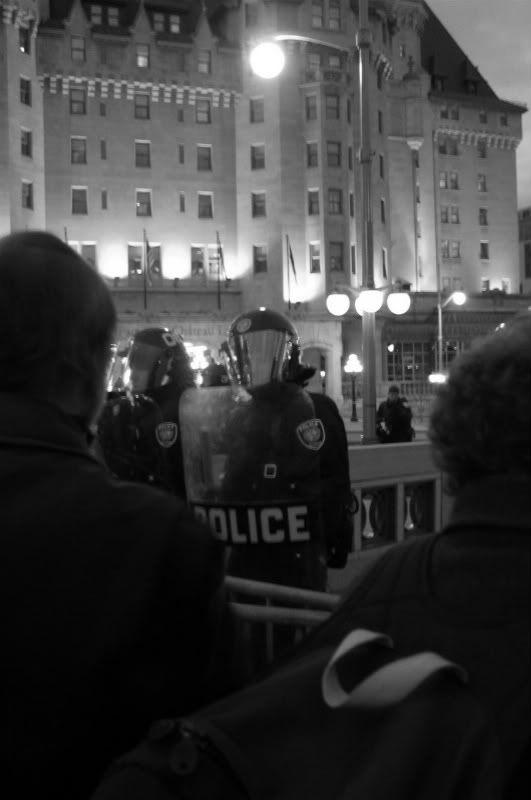Globally, spanning countless jurisdictions, there has been public outcry concerning whether or not it is responsible to allow the continuation of police investigations into internal affairs. Police deviance and issues arising related to accountability of officers today, are relevant to society in general. It is the duty of the police to serve and protect the communities in which they are employed in, and therefore, it is of utmost importance that the police instill a sense of confidence within the citizens that they are trained and contracted to defend. Despite the civil promise officers agree to upon enrolling within said profession, a remarkable amount of deviance is present within forces around the nation. The issue that surfaces as a result of this deviance is the question of who will investigate the problem at hand. At present there is a Commission for Public Complaints Against the RCMP (CPC), who function as a federal organization sovereign of the Royal Canadian Mounted Police and work towards developing intelligence that intends to repair significant concerns surrounding accountability of today’s police. Furthermore, several provinces around the country have formed special task forces comprised of civilian investigators, police, and administrative staff called Serious Incident Response Teams who are assigned to investigate serious police related events such as deaths, sexual assaults, and critical injuries caused by or involving officers (Jackson). The CPC and Serious Incident Response Teams are a step in right direction, however, CPC is focused on larger scale, broader investigations of the RCMP as a whole, opposed to specific, personal incidents and SIRT teams exist only in three provinces (Alberta, Nova Scotia, and Ontario) currently. This indicates that for the most part, the RCMP and additional provincial police departments are in charge of investigating affairs of one another concerning deviance and serious incidents, which leads many to question the severity of this blatant conflict of interest.
According to Section 37 of the RCMP Act, members of the Royal Canadian Mounted Police operate in accordance to six core values: “integrity, honesty, professionalism, compassion, respect and accountability” (Section 37 RCMP Act) and although ethics and good moral standards are classified as highly regarded, it is definitely apparent that in many circumstances these values are thrown out the window. In such cases, and especially in cases involving death or assaults and injury, an outside police force is called upon to investigate the events that took place. Herein arises the conflict of interest. It would be unrealistic to assume that members of the same association could be expected to carry out a completely unbiased examination of other members, when the very organization they both belong to prides itself on stressing loyalty among colleagues. In order to protect one another, police investigating police rarely expose the real details of an incident to the public (Haubin). This method of cloaking potentially central facts pertaining to an investigation accounts for the unease public experience when members investigate members (The Mark Newsroom). The secrecy that goes hand in hand with loyalty of the organization creates widespread mistrust of police, as most feel that if the investigation was being handled properly, what would the need for such concealment be? Due to such silence about the operations involving police investigation, it is difficult for the public to be confident that the inquiries are being conducted thoroughly. This begs the question of whether such examinations are actually being treated as if they pose any real significance or whether insiders are simply turning the cheek to internal wrongdoings. Until RCMP and other police forces are willing to open up cases to investigation by organizations independent of the police, there will continue to be a sentiment of mistrust and lack of confidence in the integrity and accountability of law enforcement.
Subsequent to a web audit for information concerning ‘police investigating police’, results from most of the links on the first page of Google were actually fairly relevant. The first three pertain to the Commission for Public Complaints Against the RCMP. Another article discusses the formation of the Serious Incident Response Team in Nova Scotia. Further down the page, most of the articles produced by the search examine specific cases in the past in which police have been required to investigate themselves. Although the three first pages linked to the search were created by the Government of Canada and discuss the final findings of inquiries done by the CPC, they do not provide any negative feedback about the RCMP’s internal operations, which may lead readers to feel slightly disillusioned by the research, as it comes off as slightly in favor of the RCMP (possibly even biased). Most of the articles other than those involving the CPC were written in an opinionated manner by journalists, and lacked academic substance.
References:
Commission for Public Complaints Against the RCMP. “Police Investigating Police – Final Public Report.” Commission for Public Complaints Against the RCMP. Government of Canada., Aug. 2009. Web. 28 September 2011.
Haubin. “It’s Wrong to Have Police Investigate Police Shootings.” The Montreal Gazette 26 July 2007. Web. 28 September 2011.
Jackson, David. “No More Cops Investigating Cops.” The Chronicle Herald [Halifax] 28 Sept. 2011.Web. 28 September 2011.
Royal Canadian Mounted Police. “Ethics and Integrity in the RCMP.” Royal Canadian Mounted Police. Government of Canada., Nov. 2006. Web. 28 September 2011.
The Mark Newsroom. “Montreal Shooting: Police Investigating Police.” The Mark [Toronto] 9 June 2011. Web. 28 September 2011.


One point of clarification – the RCMP CPC does receive and investigate individual complaints into RCMP misconduct. Members of the public can contact the CPC directly and initiate a complaints process.
The fact that we are situated in Surrey, BC gives us an interesting vantage point on the debate over police investigating police – recent controversies led the provincial government to announce plans for a civilian Independent Investigations Office in May 2011. This is an important change. It would be excellent if your next post could discuss the IIO. I would recommend reading the position of Pivot Legal Society on this: http://www.pivotlegal.org/node/304.